Don’t Give Mukasey a Pass
The nominee for attorney general doesn't know "what is involved" in waterboarding, and he appears to back Bush's usurpation of power. Isn't it time for the Democrats to grow some spine?WASHINGTON — This is the era of it-could-be-worse.
That is what Democratic control of Congress has given us: a nominee for attorney general, Michael Mukasey, who is likely to be confirmed even though he appears to endorse some of the most dangerous expansions of executive power that the Bush-Cheney crowd has concocted. And even though he cannot bring himself to declare that waterboarding — an infamous interrogation technique that the United States has used on terrorism suspects — is torture.
But after all, we could do worse.
We could still have as attorney general Alberto Gonzales, a shamelessly partisan presidential crony who turned the Justice Department into a coven for “loyal Bushies.” They believed their mission was to implement White House wishes. There is accumulating evidence that they used the department as a posse to hunt down Democratic officeholders and activists and prosecute them, even as they punished those U.S. attorneys — appointed by the president — who targeted corrupt Republicans.
Or, some Democrats argue, we could have had a fiercely partisan nominee such as former Solicitor General Theodore Olson, whose selection was vetoed in advance because of his role in the Florida voting imbroglio of 2000. So Mukasey is what we’ve got, and it seems as though Democrats will settle for him.
Compare Mukasey to Gonzales and you at least see someone who has federal judicial experience and a reputation for fairness in court. He certainly gives the impression that he won’t go along with the ruthlessly partisan shenanigans that tainted and demoralized the Justice Department under Gonzales.
Still, you have a nominee who will not say that waterboarding — the practice of covering a prisoner’s head then cascading water upon him to simulate drowning — is torture. It is a technique that was used by the Nazis and Cambodia’s Khmer Rouge. It has been applied by the United States to terrorism suspects who haven’t been charged with any offense. Mukasey, at his confirmation hearing, said he doesn’t know “what is involved” in the technique.
Perhaps he has been held in isolation as the American use of the practice has been exposed and debated worldwide. Or perhaps he is lying. Mukasey will have a chance to “clarify” his torture comments when senators on the Judiciary Committee submit written questions to him.
But what of his view that there are some ways in which a president can operate outside of the law?
This is the heart of the Bush-Cheney doctrine of the presidency. It goes beyond historians’ concept of an “imperial presidency.” It is more like autocracy.
The president issues secret executive orders to bestow upon himself powers he does not have under the law as written. This is what George W. Bush did when he set up a system to eavesdrop on Americans without first obtaining warrants. Mukasey, when asked at his confirmation hearing about this practice, strongly implied that the president was acting within his powers under the Constitution — despite a statute explicitly barring the surveillance without an order from a secret national security court.
On many of the most significant affronts to constitutional liberties and international law that the administration has carried out in the name of fighting terrorism, Mukasey was in sync with Bush. He is, in this sense, a company man without the taint of cronyism that sullied Gonzales. But yes men are dangerous, even when they come with a pedigree that appeals to senators desirous of moving on and determined to avoid a political showdown.
The scenario is familiar because it has played out so many times — and led to such great calamities — throughout Bush’s presidency. It is, in a way, precisely the thinking that gave Bush a lopsided vote in favor of invading Iraq: Democrats in 2002 were keen to get the war vote over with, so they could turn voters’ attention to the economy in the midterm election campaigns.
Cynicism must not prevail this time. The reasons we’ve fallen so far in world esteem aren’t only that we launched the destabilizing adventure in Iraq or botched the effort to eradicate the Taliban and al-Qaida. It is partly because we have abandoned the very concepts on which the United States was founded — principles of law and justice we say we want others to emulate.
The Justice Department is supposed to uphold these principles and not allow any president to trash them. Mukasey should demonstrate his own fidelity to them or his nomination must be voted down.
Marie Cocco’s e-mail address is mariecocco(at)washpost.com.
© 2007, Washington Post Writers Group
Your support matters…Independent journalism is under threat and overshadowed by heavily funded mainstream media.
You can help level the playing field. Become a member.
Your tax-deductible contribution keeps us digging beneath the headlines to give you thought-provoking, investigative reporting and analysis that unearths what's really happening- without compromise.
Give today to support our courageous, independent journalists.
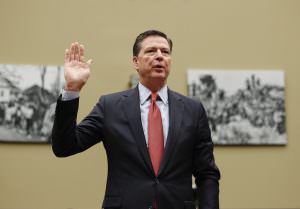

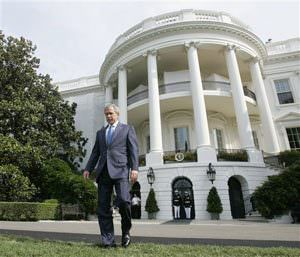
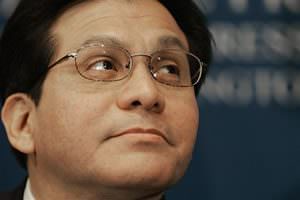
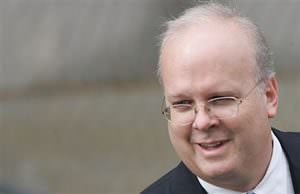
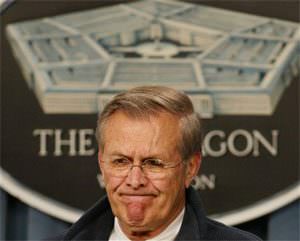
You need to be a supporter to comment.
There are currently no responses to this article.
Be the first to respond.